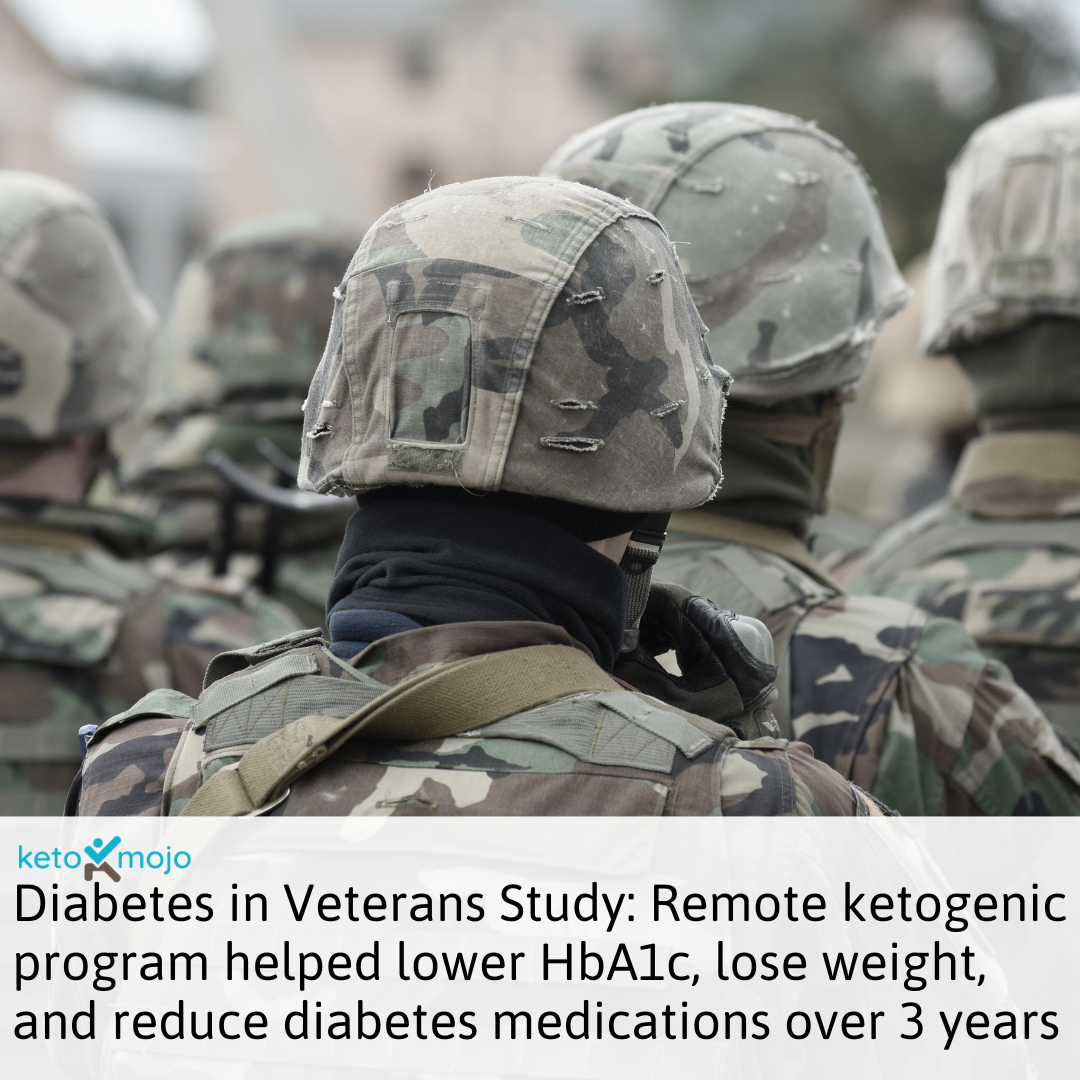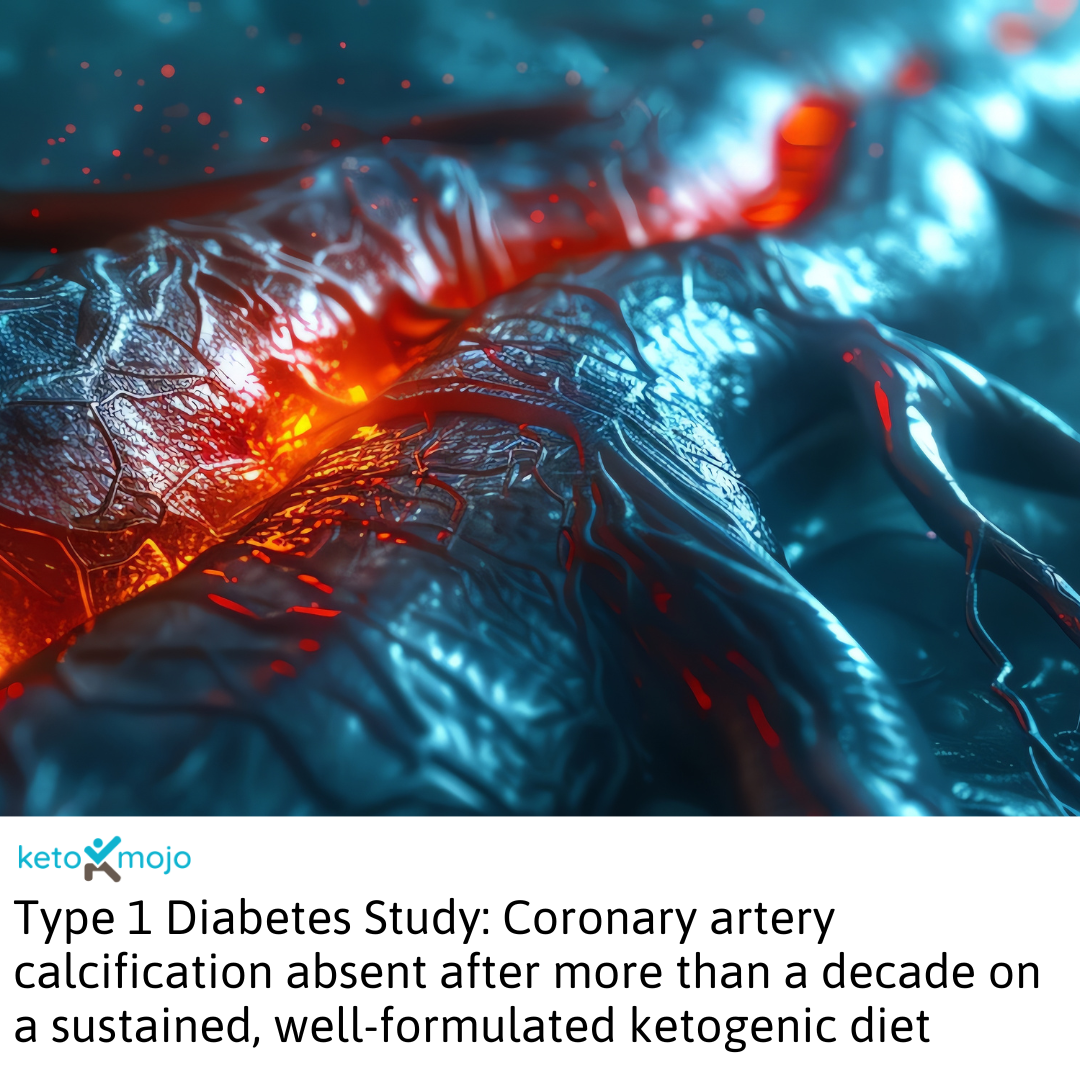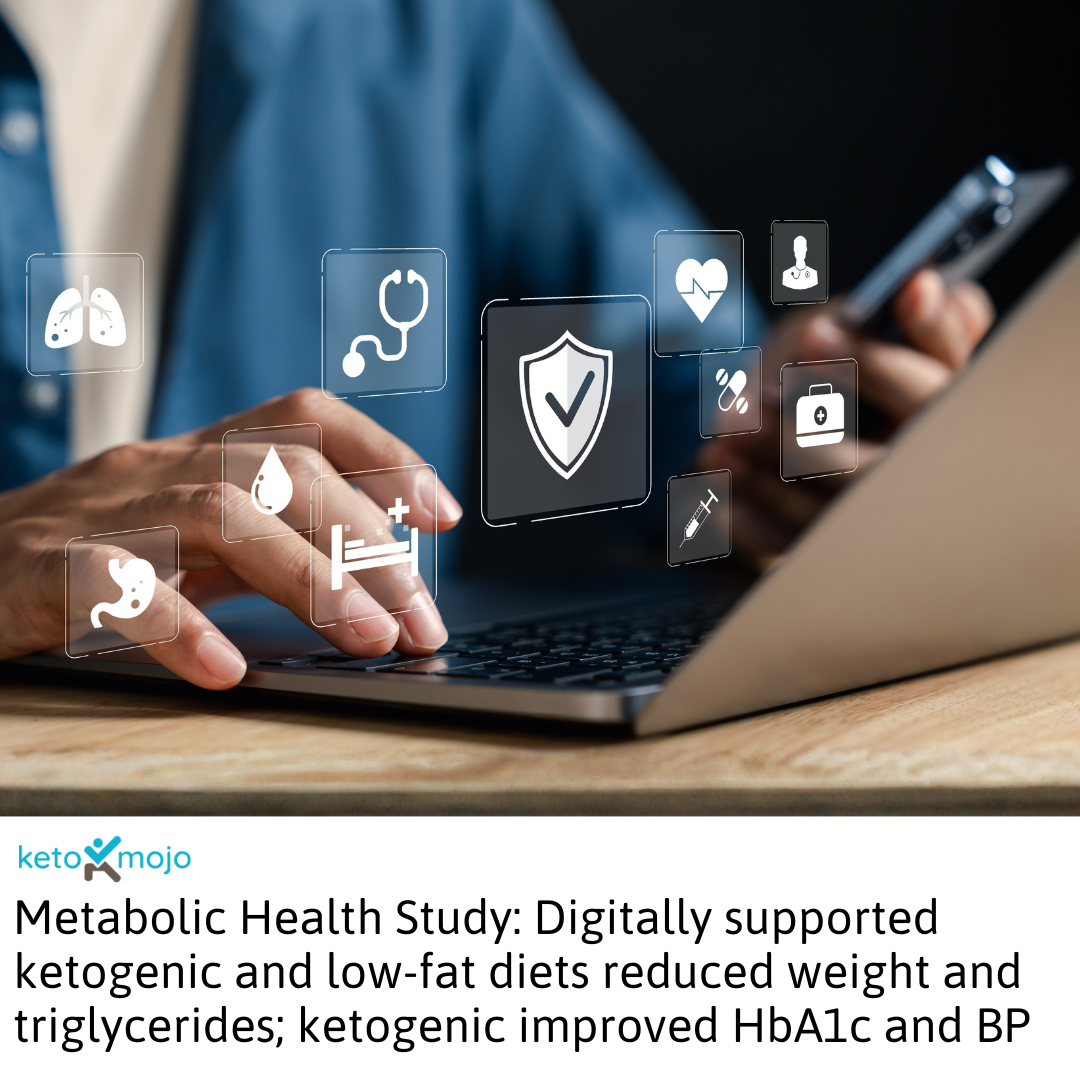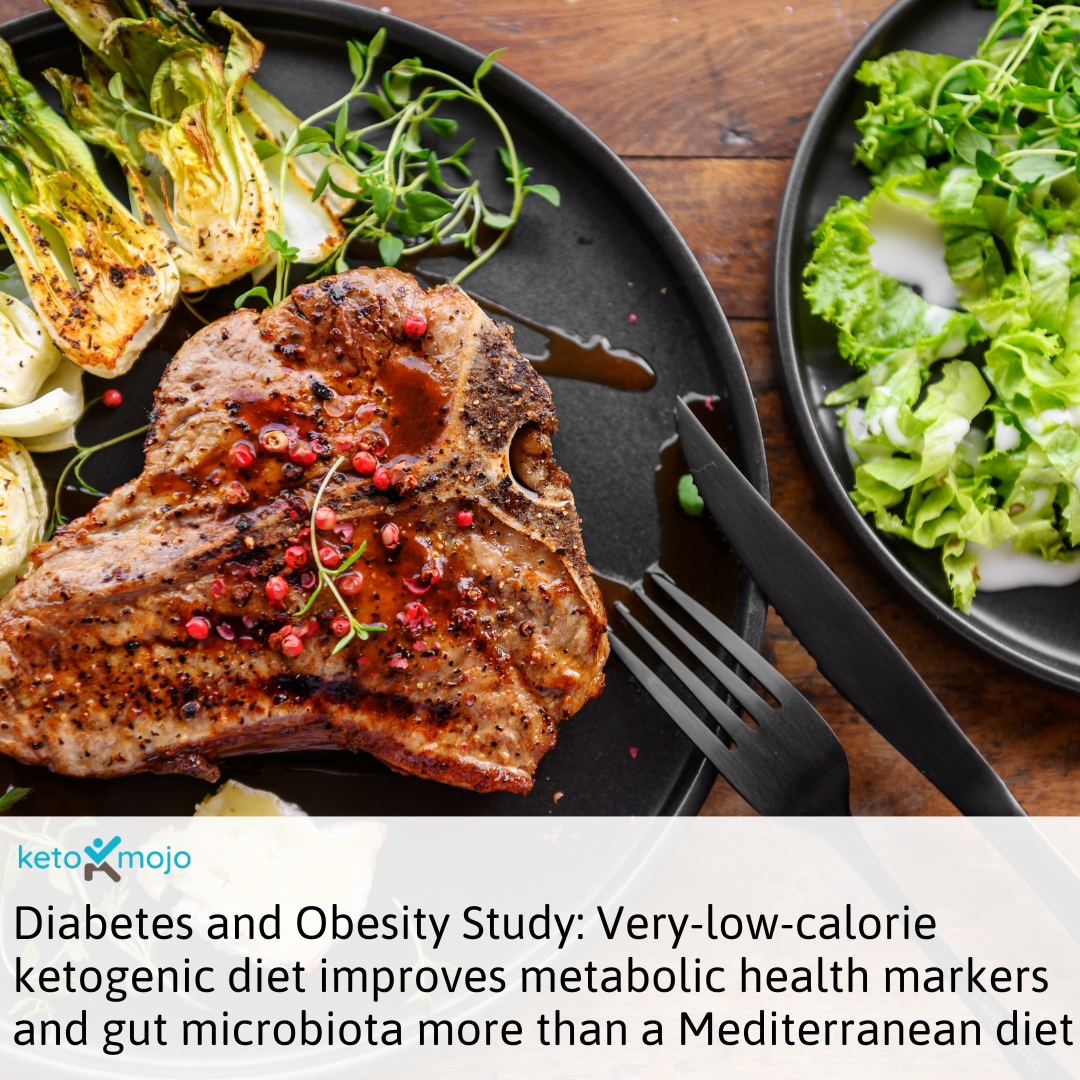Diabetes
Sustained metabolic improvements in a remotely delivered ketogenic nutrition programme for veterans with type 2 diabetes: A 3-year observational study

Veterans with type 2 diabetes (T2D) face unique challenges, including high rates of comorbidities and barriers to in-person care. This 3-year observational study evaluated the effectiveness of a remotely delivered, medically supervised ketogenic nutrition program developed in partnership with the Veterans Health Administration. The study assessed long-term changes in glycemic control, weight, diabetes medication use, and cardiometabolic health among participants who remained enrolled, as well as those who discontinued early.
Key Results
Glycemic Control (HbA1c):
- ↓ 0.8% at both 2 and 3 years
- Greatest reductions in those with baseline HbA1c ≥8% (−1.3%)
Weight Loss:
- ↓ 9% at 2 years (~20 lbs/9 kg), ↓ 9.5% at 3 years (~22 lbs/10 kg)
- Greater weight loss in those using insulin or maintaining nutritional ketosis during the first six months
Medication Use:
- ↓ 19% in insulin use
- ↓ 27% in sulfonylureas
- ↓ in average number of diabetes medications (excluding metformin) from 1.7 to 1.1
Cardiometabolic Markers:
- ↑ HDL-C (+3.5 mg/dL at 2 years and +3.9 mg/dL at 3 years)
- ↓ triglycerides (−16 mg/dL at 2 years and −20 mg/dL at 3 years)
- ↓ liver enzymes (ALT, AST)
- Kidney function (eGFR, creatinine, UACR) remained stable
Among Those Who Discontinued at <2 Years):
- Those enrolled ≥6 months lost ~6–7% of body weight
- Glucose and medication use also declined
A continuous remote care model delivering ketogenic nutrition therapy led to sustained improvements in glycemic control, body weight, and medication use in veterans with T2D. Benefits were consistent across subgroups and also evident in shorter-term participants. These findings support remote ketogenic therapy as a viable option for long-term diabetes management.






